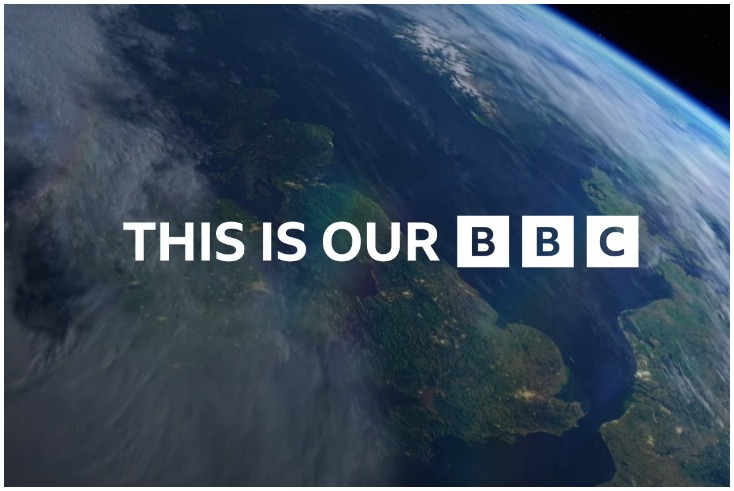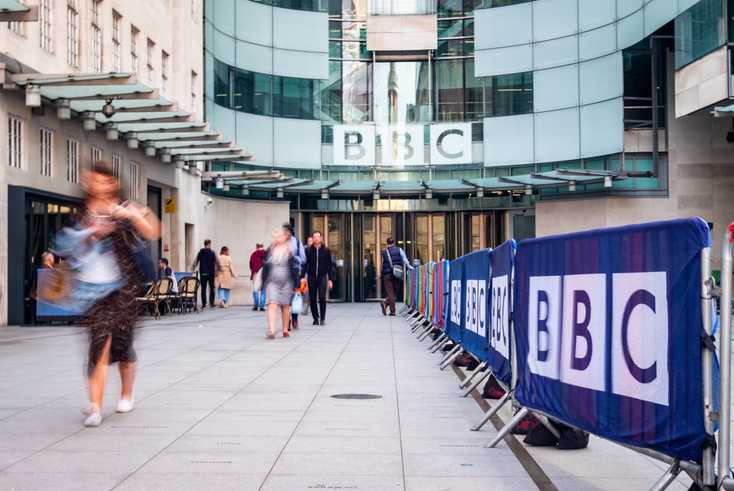Why threats to the BBC appear to have died down… for now

Media analysts are optimistic about the BBC’s short-term future, but are far less certain about proposals to introduce UK subscriptions and advertising.
“The BBC is no longer in any kind of existential crisis at all.”
That’s the view of renowned media analyst Claire Enders, who insists the Corporation is not under immediate threat for now despite recent overtures from the Government about scrapping the licence fee.
Nevertheless Enders, the founder of Enders Analysis, agrees that the future of the BBC’s funding is not as secure as it once seemed.
“For once, I’ve got to say we are in a much better place than we were two years ago, and indeed, where we were even six months ago and so on. It could have been become very drawn out and when Nadine Dorries became Secretary of State, it seemed an extraordinarily worrying time for the BBC,” she added.
Dorries announced in February that the licence fee would be frozen at £159 per year for the next two years, leaving the BBC with a £285m shortfall, but hinted on Twitter that this would be the last such agreement with the BBC.
The broadcaster signed a deal in January that guarantees its income for the next six years, but that does not mean the BBC has the level of security and certainty over its future funds as it might appear, Enders noted.
She explained that while the organisation signed this six-year deal, it is possible the government could refuse to allocate CPI (cost per inflation) to the licence fee, meaning it would not be increased in line with inflation.
Enders told The Media Leader: “It is possible that the Treasury will decide to increase the licence fee by a rate below CPI. Consider what an outcry there would be if the licence fee increased by 15% because that’s what inflation is in say 2023. There is a political dimension there always.”
In theory, the Treasury could vary the actual increase accessible to the BBC and could determine that a lower CPI would apply to the licence fee over a year than the actual rate that is present at the time, she explained.
Additionally, Enders said in two years’ time we will “start the conversation” on the Royal Charter, which is the constitutional basis for the BBC. The Charter, which ends in December 2027, lasts for 10 years and outlines the BBC’s object, mission and public progress as well as its governance and regulation.
 “The BBC has essentially given away BritBox to ITV”, says analyst Alex De Groote
“The BBC has essentially given away BritBox to ITV”, says analyst Alex De GrooteThe Government carries out mid-term and full Charter reviews. The former only focusses on governance and regulation and the latter incorporates broader concerns such as the Corporation’s purpose and funding.
Enders commented: “It is written into the DNA of the Conservative Party that there will be alternatives to the licence fee and that will always be a debate that is bubbling along much as privatisation of Channel Four, even if it doesn’t actually happen.”
“Those conversations will never stop. It will be an article of faith for the Conservative Party to try, if only to threaten the BBC with the end of the licence fee. It’s the only way that they can keep a grip on the BBC, or they think they can keep a grip on the BBC, is to keep i that threat over the BBC head but it’s not actually a a realistic threat.”
What are the alternatives to the licence fee?
The House of Lords Communications and Digital Committee has opened an inquiry looking into alternatives to the current licence fee arrangement and how the Corporation should adapt to changing consumer habits.
Subscription and ad-funded models seem to be the main alternatives, of which Enders said: “The radio services, the online services and the news on TV, all of those elements are now no longer considered appropriate for subscription so that I think is a huge step forward out of this debate.”
This was echoed by TMT analyst and investor Alex DeGroote who said that only bits of the BBC could be put on subscription, potentially local radio and high-end drama, rather than news.
DeGroote added: “The BBC has essentially given away BritBox to ITV – they do not think subscription works. They can get a little subscription and ad revenue but not enough to make a real difference and they are probably capped on the licence fee at £150 a year.”
Extrapolating from ITV’s revenue and audience share, DeGroote highlighted the UK TV ad market is currently worth around £4bn, and while the BBC currently has around 30% audience share, following an ad-funded model would not treble the TV market, but only add about 20% to make the market worth £5bn.
He said the BBC is not set up like the big TV sales houses for an ad-funded model, despite BBC’s international services carrying ads.
The BBC would maybe have to consider outsourcing to a third party to set up an ad-funded model and ultimately the little subscription or ad revenue the BBC could get would not be enough to cover its costs and only take share from of adspend from players like ITV as well as Channel 4, Channel 5 and Sky, DeGroote explained.
The BBC divides its sales into ad sales, content sales, format sales and channels sales.
Sean O’Hara, EVP advertising and BBC Storyworks, leads the dedicated ad sales team of 150 people for Global News looking after ad sales for its international digital news products and the World News TV channel.
According to its annual report, BBC’s commercial revenue for 2021 was £1.38bn compared to £1.57bn in 2020.
This is compared to its 2021 licence fee income of £3.75bn, compared to £3.52bn in 2020.
Ad revenue outside of World News and bbc.com like BBC Studios international channels is primarily generated by channels partners or by advertising houses as the BBC does not currently have a dedicated in-house function.
DeGroote said: “The idea that they can just push a button and become a big player in advertising is mad. You cannot compete with Netflix on £4bn.”
He added there is nothing wrong with the BBC sticking to what it is really good at rather than “chasing youth”, namely “really important boring things” like news and education, gardening programmes and local radio.
Ian Whittaker, media, mar-tech and tech analyst said the BBC following an ad-funded model would be “the worst of all worlds”.
He told The Media Leader: “It’s unlikely to attract a significant amount of new money into TV so it means the pot has to be divided further.
“The BBC wouldn’t have enough to fund itself but it would probably siphon enough off from other players to wreck their business models.”




